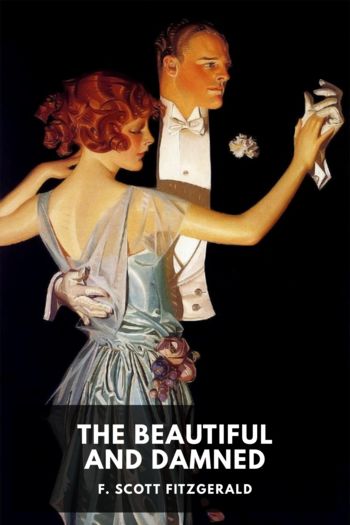Twelve Years a Slave by Solomon Northup (books to read to get smarter .txt) 📕

- Author: Solomon Northup
Book online «Twelve Years a Slave by Solomon Northup (books to read to get smarter .txt) 📕». Author Solomon Northup
It was a dark night. All was quiet. I could see lights, or the reflection of them, over towards Pennsylvania Avenue, but there was no one, not even a straggler, to be seen. I was almost resolved to attempt to break away. Had I not been handcuffed the attempt would certainly have been made, whatever consequence might have followed. Radburn was in the rear, carrying a large stick, and hurrying up the children as fast as the little ones could walk. So we passed, handcuffed and in silence, through the streets of Washington—through the Capital of a nation, whose theory of government, we are told, rests on the foundation of man’s inalienable right to life, liberty, and the pursuit of happiness! Hail! Columbia, happy land, indeed!
Reaching the steamboat, we were quickly hustled into the hold, among barrels and boxes of freight. A colored servant brought a light, the bell rung, and soon the vessel started down the Potomac, carrying us we knew not where. The bell tolled as we passed the tomb of Washington! Burch, no doubt, with uncovered head, bowed reverently before the sacred ashes of the man who devoted his illustrious life to the liberty of his country.
None of us slept that night but Randall and little Emmy. For the first time Clem Ray was wholly overcome. To him the idea of going south was terrible in the extreme. He was leaving the friends and associations of his youth—everything that was dear and precious to his heart—in all probability never to return. He and Eliza mingled their tears together, bemoaning their cruel fate. For my own part, difficult as it was, I endeavored to keep up my spirits. I resolved in my mind a hundred plans of escape, and fully determined to make the attempt the first desperate chance that offered. I had by this time become satisfied, however, that my true policy was to say nothing further on the subject of my having been born a freeman. It would but expose me to maltreatment, and diminish the chances of liberation.
After sunrise in the morning we were called up on deck to breakfast. Burch took our handcuffs off, and we sat down to table. He asked Eliza if she would take a dram. She declined, thanking him politely. During the meal we were all silent—not a word passed between us. A mulatto woman who served at table seemed to take an interest in our behalf—told us to cheer up, and not to be so cast down. Breakfast over, the handcuffs were restored, and Burch ordered us out on the stern deck. We sat down together on some boxes, still saying nothing in Burch’s presence. Occasionally a passenger would walk out to where we were, look at us for a while, then silently return.
It was a very pleasant morning. The fields along the river were covered with verdure, far in advance of what I had been accustomed to see at that season of the year. The sun shone out warmly; the birds were singing in the trees. The happy birds—I envied them. I wished for wings like them, that I might cleave the air to where my birdlings waited vainly for their father’s coming, in the cooler region of the North.
In the forenoon the steamer reached Aquia Creek. There the passengers took stages—Burch and his five slaves occupying one exclusively. He laughed with the children, and at one stopping place went so far as to purchase them a piece of gingerbread. He told me to hold up my head and look smart. That I might, perhaps, get a good master if I behaved myself. I made him no reply. His face was hateful to me, and I could not bear to look upon it. I sat in the corner, cherishing in my heart the hope, not yet extinct, of some day meeting the tyrant on the soil of my native state.
At Fredericksburgh we were transferred from the stage coach to a car, and before dark arrived in Richmond, the chief city of Virginia. At this city we were taken from the cars, and driven through the street to a slave pen, between the railroad depot and the river, kept by a Mr. Goodin. This pen is similar to Williams’ in Washington, except it is somewhat larger; and besides, there were two small houses standing at opposite corners within the yard. These houses are usually found within slave yards, being used as rooms for the examination of human chattels by purchasers before concluding a bargain. Unsoundness in a slave, as well as in a horse, detracts materially from his value. If no warranty is given, a close examination is a matter of particular importance to the negro jockey.
We were met at the door of Goodin’s





Comments (0)